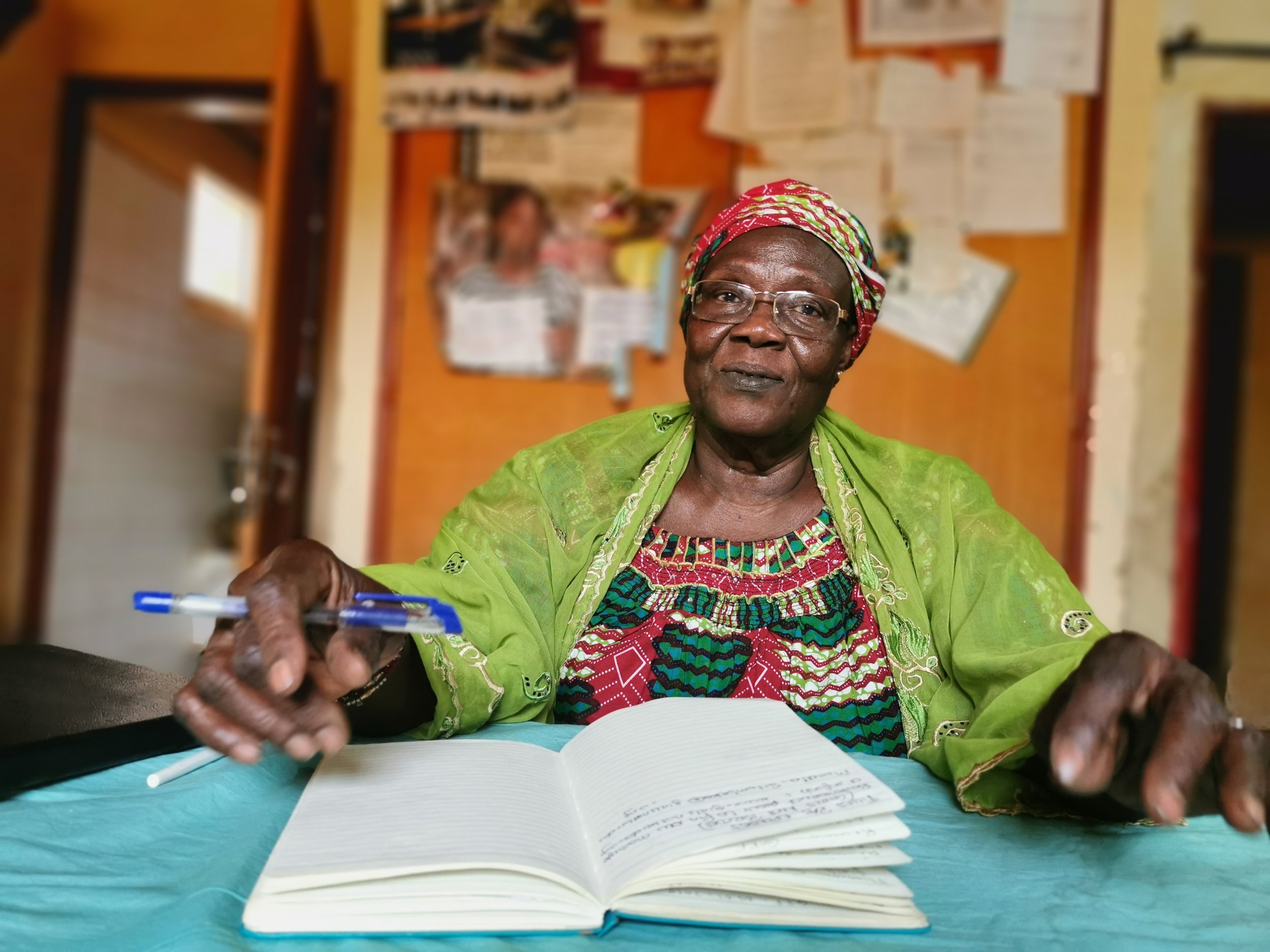"My father raised me like a boy" - Salamatou Traoré (Niger) - 1/4
/During a trip to Niamey in August 2019, Françoise was able to visit Mrs. Salamatou Traoré and her NGO, Dimol. In this interview, Mrs. Traoré talks about her life, her public health career (Part 2), her mission to help women suffering from obstetric fistula to transform their communities (Part 3), and her ideas on feminism (Part 4).
Hello Mrs. Traoré and thank you for taking part in this Eyala interview. Could you briefly introduce yourself?
My name is Salamatou Traoré. I’m a trained nurse and midwife. I’m Nigerien and am very committed to defending women’s rights: that’s what defines me. I do not like it when a woman is underestimated, or her rights are violated. I really want the well-being of women.
Why did you want to become a nurse and a midwife? When did healthcare begin to be an important aspect of your life?
I was someone who knew about every health issue early on. My dad was in the military and then was a nurse in civilian life. He went to every region. He served in Niger and in Burkina Faso. I would often see him go into the wilderness, on his horse, to do medical evacuations with his rifle on his shoulder. If he came back with game, I knew that his mission was successful, because he had time to hunt on his way back. If his shoulder bag was empty, I would know that the patient had died.
When I told him that, he noticed that I was very clever and that I understood him perfectly. We spent a lot of time together. My dad raised me like a boy. I was the one who helped him do work in the backyard or to keep the neighbourhood clean. I would push my wheelbarrow and brooms: I swept, and he picked things up. I would go on the roof to do renovations. I was like a little boy next to him, while all the boys in the house were sleeping. I was truly free, unlike all the other girls. It’s only afterwards that I realised how different my father was in his relationship with children. He protected all the girls in the family from female genital mutilation. In my family, all the girls were successful.
So, you chose to become a nurse to honour your father?
Yes. When I found out I passed the nursing exam, he told me: “Salamata, I must tell you something. If money is what you’re after, don’t work in health care, because that’s not where you’ll find it. But if you’re seeking gratitude and blessings from your patients, do it.” I told him: “I want to be like you, Dad.”
Something else convinced me to work in healthcare. One day, when I was 13, I went to the National Hospital to take food to my older sister who was on-call in the maternity ward. When I got there, I saw a girl in the corridor who had a hard time walking. She had a tube in her hand. She was walking with the help of a stick, and her mother was there to help her. I noticed that she was moving very slowly, and that water was oozing out as she passed. She was crying and shaking, and I could feel that she was in tremendous pain. When my older sister arrived, I asked her what was wrong with the girl. She explained to me: “This isn’t a girl but a new mother. She has just given birth but now she has a fistula so she can’t retain her urine anymore. On top of that, her baby passed away.”
I was shocked to see a skinny little girl, younger than me, who had already been married and had given birth to a dead child, and was now sick. I, the daughter of a public servant, was very strong and well-fed. But she, who was from the “bush”, was suffering and couldn’t hold her urine. I said to myself that there was a problem here.
That guided me. Once I arrived home, I talked to my dad about it, and I asked him a lot of questions. I learned that when childbirth is difficult, both the mother and the child could die. He told me: “This young girl is a survivor.” I kept that in mind, and I said, “I’ll work in health care”. In total, I’ve worked in the health sector for 25 years: 8 years as a nurse, and then as a midwife the rest of the time.
In the second part of our conversation, we’ll discuss her career in public health. Click here to read it.
Read more about obstetric fistula here: https://www.unfpa.org/obstetric-fistula




